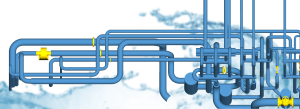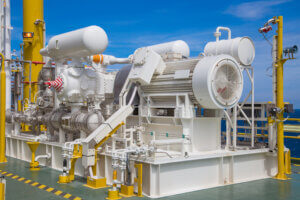
Water Hammer Analysis using BOSfluids
Training Courses Water Hammer Analysis using BOSfluids: Surge Analysis Download Brochure About The Course This course teaches you all the fundamentals of performing water hammer
Flow assurance is about ensuring that fluid flows as intended in a pipe or a well. It relies heavily on well-established sciences like fluid mechanics, thermodynamics, mechanical engineering, chemical engineering, discrete mathematics, automation, and computer science. However, even though the sciences are well established, flow assurance is developing very rapidly, and keeping updated on all the latest developments can be a huge challenge. Advanced flow assurance technology often leads to very significant cost savings, sometimes even making the building of permanent topside platforms redundant for new offshore development projects by sending unprocessed multiphase flow directly to shore.
Commercially available simulation software tools have played a crucial role in the development of the field of flow assurance. Using these simulation tools to the best effect requires engineers with an understanding of what goes on “under the hood”.
This workshop will examine not only the key concepts and theories of flow assurance but also compare the various simulation tools closely and through various examples, help participants understand the best way to apply these tools to their flow assurance practices. The course facilitator has recently published two updated books on flow assurance, and a digital version of these books will be given to the participants.
Some of the subjects discussed in the workshop will be drawn from the books, while others will be designed based on exercises and input from the participants.
DAY 1
DAY 2
DAY 3
Classroom
This course is scheduled for 3 work days. The dates of the course are organized upon inquiry.
This course is available in the classroom format.
Prerequisites and level
Basic background in fluid mechanics.
Intended For
This course is designed for:
After this course, participants are expected to:

Training Courses Water Hammer Analysis using BOSfluids: Surge Analysis Download Brochure About The Course This course teaches you all the fundamentals of performing water hammer

Training Courses Pulsations And Vibrations: Reciprocating Compressors Download Brochure About The Course This course imparts fundamental knowledge of pressure pulsations in piping, particularly in the

Training Courses How to Review a Pulsation Study About The Course Pulsation studies can result in quite elaborate and complex reports with large output data
Laan van Oversteen 20
6th floor
2289 CX Rijswijk
The Netherlands
© Dynaflow Research Group BV